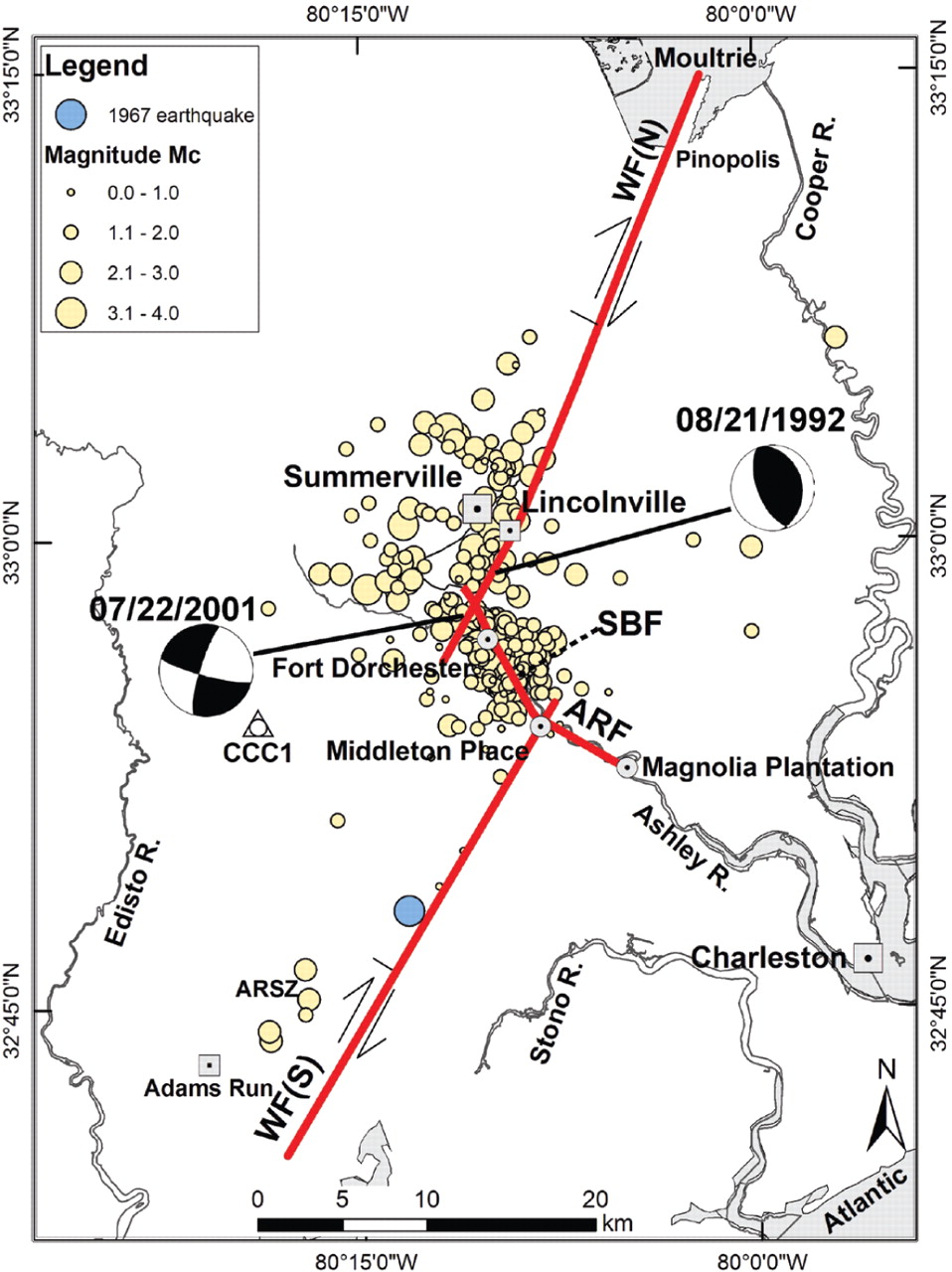USGS Raises EQ risk for 1/3 of the country
- Thread starter Displaced Bama Fan
- Start date

Preparing for earthquakes in South Carolina
Earthquakes? In South Carolina? When Americans think of earthquakes, California comes first to mind; others note the serious earthquake hazards of Alaska and Missouri. But unknown to virtually all Americans—South Carolinians included—the Palmetto State also has a long and violent earthquake history that continues to the present day. The two pictures above show the catastrophic degree of property damage from the Great Charleston Earthquake of August 31, 1886, in Summerville (left) and Charleston (right), during which over one hundred twenty-four people were killed and hundreds more severely injured. The state is home to one of the most active earthquake-producing regions in North America, a twenty-five by fifteen-mile oval known as the Middleton Place-Summerville Seismic Zone, whose center lies about twenty-two miles northwest of Charleston.
The 1886 Great Charleston Earthquake was the largest, most destructive, and most lethal earthquake ever to strike east of the Mississippi. To this day, it dominates the seismic history of the entire East Coast. It struck without warning and caused far more deaths, injuries, and property damage than Hurricane Hugo, a Category IV hurricane (1989). It was also larger and more destructive than the 1989 Loma Prieta, California earthquake, which killed 63 people, destroyed much of the San Fransicso Bay Marina district, broke the upper span of the Oakland Bay Bridge, pancaked freeways, and blacked out the World Series telecast.
Yet this reality—and the threat of future catastrophic South Carolina earthquakes—is virtually unknown to the vast majority of the state's residents and the millions of people who visit here. In 2008, 122 years after the Great Charleston Earthquake, the residents of South Carolina have no greater awareness of the state's earthquake hazards than they had in 1886. The reasons are twofold. First, no one living in South Carolina since their birth has experienced a catastrophic earthquake here. Second, no government agency in the history of the state has attempted to put useful earthquake awareness and preparation information directly into the hands of all the people. As a result, less than one South Carolinian in 1,000 is actively aware of the state's earthquake history and hazards -- or how to prepare for "the next big one."
Looks like the best places to go to get away from earthquakes are the hurricane zone, the tornado zone, the blizzard zone, and (in the case of west Tejas) the bored-slam-to-death zone.
That one has always been a hotbed.why charleston, sc? im not aware of any faults along the coast there
That map looks like the design maps in the International Building Code.
Yeah. Go do a tour of old Charleston and you can see all the older buildings are held together by huge bolts spanning the the width of a building where they were wrecked by a 7.5 right after the civil war.why charleston, sc? im not aware of any faults along the coast there
Yep, good dreary, bone-dry west Texas.Looks like the best places to go to get away from earthquakes are the hurricane zone, the tornado zone, the blizzard zone, and (in the case of west Tejas) the bored-slam-to-death zone.
Smooth sailing here is Florida, but we sometimes have strong breezes to tend to every now and then.
Sent from my iPhone
Roll Tide! 15 Time National Champions, More BCS Championships than any school...
Sent from my iPhone
Roll Tide! 15 Time National Champions, More BCS Championships than any school...
Wow. The earthquake risk was lower under Bush, Back then, this earthquake problem wasn't as bad.
Just sayin'.
Just sayin'.
Thanks, Obama...Wow. The earthquake risk was lower under Bush, Back then, this earthquake problem wasn't as bad.
Just sayin'.
Llano Escatado is Spanish for "It's sure flat out here"and (in the case of west Tejas) the bored-slam-to-death zone.
Amazon Prime Day Deals for TideFans!
Hangtime University of Alabama - Alabama Crimson Tide Bama Nation - University of Alabama Route Sign

Get this and many more items during Amazon Prime Day Deals (July 8-11)!
Get a Prime Free Trial!


